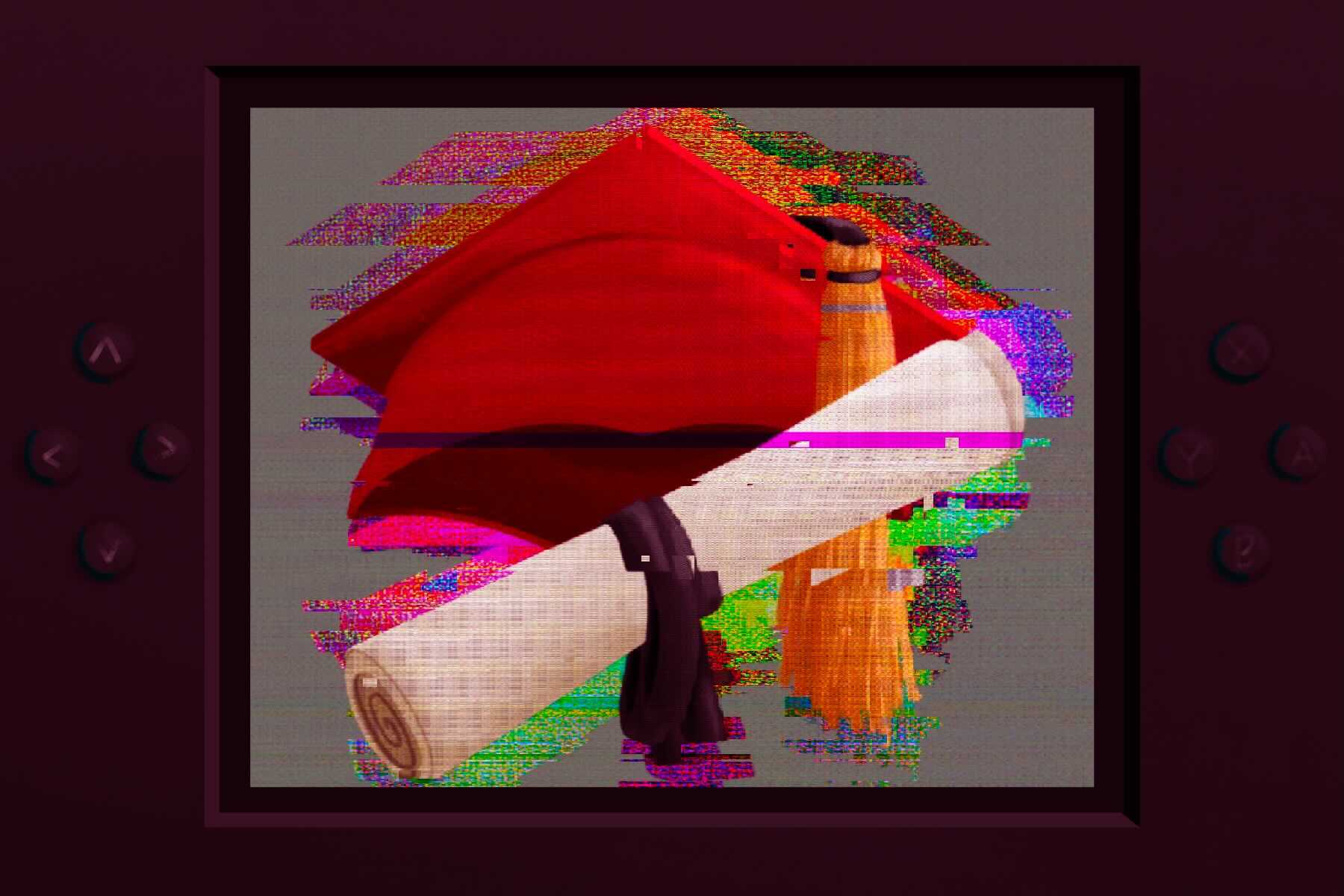As someone who has played video games my entire life, I think ludology — the study of video games — is the most interesting topic ever. Through going to school for game production, I’ve learned so much about video game history, the industry, user experience and design principles. I’ve had a great time, and I’m grateful to have learned so much, but I find myself on the verge of graduating still wanting to learn more. I want to dig deeper than I have so far and continue writing my silly little papers on Mystic Messenger’s parasocial relationships and the gender mechanics of Pokémon. And while I probably won’t just yet, I’m lucky to have the option to continue my studies at Indiana University with a Ph.D. in media arts and sciences, where I could focus on video game studies. However, my university is unique in offering this, as there aren’t many graduate programs to study video games in the United States.
Recently, more colleges have been offering game design degrees, and there are even a few colleges that offer master’s degrees in game design and development. A master’s in video game development is a worthwhile pursuit for those that wish to join the industry, but there’s still a need for graduate programs that focus on the study of video games. Currently, no Ph.D. programs specifically for video game studies are offered in North America. The only option is to find a school that offers a media studies degree that allows for a video game area of focus. If universities realized and acknowledged the importance of video game studies, more people would have the opportunity to study them.
Restructuring our views on video games to consider them cultural artifacts allows us to think more seriously about what we can learn from them. This idea is epitomized in the following quote from my video game studies graduate student teacher, Logan Brown: “By studying games, you inevitably end up having to do a little anthropology, a little engineering, a little computer science, a little philosophy, etc., etc., etc.” It takes a lot of brainpower to critically analyze media in any form, but video games demand much more from their students than simply a critical eye.
In video game studies, you must know about the time period, developer’s background, targeted player base, hardware capabilities, restrictions and countless other factors. Getting people from different backgrounds and areas of study would be a great way for game studies to progress forward. Studying video games is just as important as studies of music, film and literature because video games illustrate the human condition in a completely new and unique way. With all these static forms of art, there are only two sides: the producer and the viewer. In video games, there is a third dimension: the interaction that allows for a conversation between producer, art and viewer.
Video game preservation is a big problem in video game academia. Older physical forms of video games like discs and cartridges eventually expire as they get older. For example, Nintendo Game Boy cartridge batteries only last around 10 to 20 years — a timespan quickly approaching its end. Digital games come with an expiration date as well: servers get taken down, or the games stop receiving regular updates. How can video games be studied fully when they have such a short lifespan? Video games can be kept alive through emulation, but the legality of emulation quickly starts to get complicated.
Video game companies argue that emulation harms their market, which has been shown to be completely untrue. Consoles and their cartridges, as recent as the 2011 Nintendo 3DS, are slowly being phased out of production, thus not netting Nintendo any profit. Game companies are killing their own consoles, then they are upset when people want to keep them around? Some companies have released ways to continue playing their older titles, like Sega’s Mega Drive and Genesis Classics on Steam. Not every company is doing this though, which perpetuates the huge barrier between ludologists and the games that deserve to be studied. When game preservation is hampered, we end up with a long list of lost media video game titles. Some of these titles might seem niche or small, but every game has a lot to say, and it’s depressing that so many are being erased from existence. More schools joining the fight for game preservation could pressure these companies to allow emulation for education.
Video game classes apply to more fields than you might think. Courses about the video game industry cover different business strategies employed by game companies, as well as special marketing and promotions for games. Game history classes teach students about popular culture from the 1970s to today and discuss the media censorship and rating systems implemented in the 1990s. Talking through game technology gives a cohesive background of early computing systems, programming languages and hardware improvements; it can also be a fun introduction to coding. Game theory introduces systems thinking and user-centered design, concepts applicable to nearly every career choice. And of course, in producing your own games you learn how to have a thick skin when it comes to feedback. You learn to have flexibility in your design choices. You learn how to work as part of a team.
If you have the chance, I would highly recommend taking a class on video games. Not only are video games fun and interesting to talk about, but there’s a lot you can learn about! The video game industry is growing at an astronomical rate — in 2019, the industry was valued at around $151 billion and is expected to be worth as much as $256 billion by 2025. Video games aren’t going anywhere, and the longer they’re here, the more we have to learn from them.
















